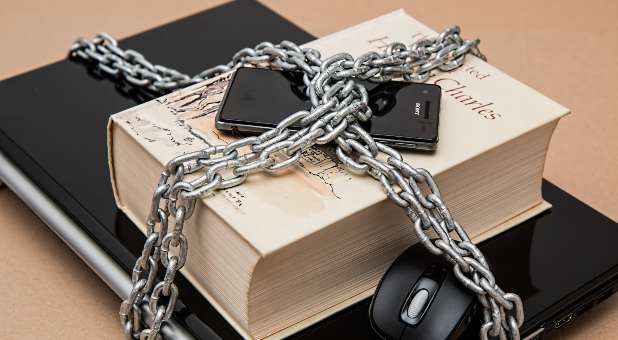Brazil Joins US in Government-Led Online Censorship
Big Tech censorship is nothing new. Truth-tellers around the world have come to expect it and have even developed new ways to navigate around the censorship. But a new factor has been added to the equation: government as the driving force behind much of the censorship.
While it is not surprising to learn that the Chinese Communist Party controls all media inside of China, it is surprising to learn about government-driven coercion of media in the West.
Brazil is the most recent exposure to come to light.
Recently released Twitter Files-Brazil showed just how far the censorship has gone, even interfering with the 2020 Brazil presidential election. The Twitter Files allege that Google, Facebook, Uber, Instagram and WhatsApp have given into Brazilian government demands by providing private user registration data.
X (formerly Twitter) leadership has elected to take a different approach. In fact, Elon Musk has even publicly committed to expose what has taken place behind the scenes with threats from Alexandre de Moraes, president of the Brazil Superior Electoral Court and justice of the Supreme Federal Court.
The Brazilian government’s efforts to shut down online free speech in Brazil include forced sharing private user data and removal of accounts. Brazil authorities have also imprisoned Brazilian lawmakers such as Daniel Silveira for “attacking democratic institutions” and “posting insults.”
This example of the Brazil Supreme Court forcing the hand of Big Tech censorship is just the next link in the chain of global government-led censorship. Government interest in controlling the media narrative has always been clear in China, but became abundantly clear in the West during COVID.
Further evidence of U.S. government-led censorship was revealed in a recent Tucker Carlson interview with Mike Benz, a former state department official. The interview discussed the aggressive censorship of online discourse around mail-in voting during the 2020 U.S. election cycle.
Breaking News. Spirit-Filled Stories. Subscribe to Charisma on YouTube now!
Benz shared how the Department of Homeland Security coerced social media companies through formal partnership and coordination mechanisms. Officials categorized any online discourse questioning mail-in voting as a “cyberattack” that must be censored.
The interview discussed the concept of narrative mapping, wherein the government can observe global discussions to automate mass content removals. They also discussed the Virality Project, which mapped out 66 different narratives around COVID, all with the goal of removing narratives the government did not want circulating.
The interview also discussed how the first formal government censorship operation was put in place under the Obama administration to partner with technology platforms. At the time, the threat of ISIS recruiting was used as justification.
These highly coordinated, government-driven efforts to coerce social media and tech companies are a clear violation of God-given rights. Governments are simply using companies to do what they are not allowed to do under the Constitution.
In the past, we have only criticized social media companies for their viewpoint discrimination and illegal censorship. We continually criticize Section 230 of the Communications Act, which includes federal immunity that is erroneously applied to protect platforms that are acting like publishers. But we can now see that a major factor in the continued loophole are the government bad actors who want to use it to their own benefit.
What can be done?
Big Tech platforms must stop betraying citizens and stand up to expose government coercion wherever it exists.
Citizens must demand that our government leaders establish a Digital Bill of Rights. Our God-given rights are not limited to physical property, in-person speech and in-person freedom of religion. Our God-given rights also extend to the digital world.
A Digital Bill of Rights could look similar to physical property rights:
— Ownership: The right to possess property includes both digital and physical property.
— Use: The right to use and enjoy both physical and digital property.
— Disposition: The right to sell, transfer or dispose of physical and digital property.
— Exclusion/Privacy: The right to prevent others from using or interfering with the physical and digital property without the owner’s permission.
— Protection from Expropriation: The right to be protected from government seizing or expropriating physical and digital property without due process.
— Intellectual Property Rights: The rights already granted to creators and inventors through patents, copyrights and trademarks.
These digital rights, among others, must be established in order to hold government actors, administrators and Big Tech companies accountable.
All governing authorities remain under God’s ultimate authority. As Christians and as citizens, we must be informed, we must continue to lead the push for biblical governance and we must hold our elected officials accountable.{eoa}
Join Charisma Magazine Online to follow everything the Holy Spirit is doing around the world!
Ryan S. Howard, Ph.D., is the host of “Cutting Edge Faith,” a podcast that helps Christians understand the times, stand for truth and grow in their faith. He has worked in global purchasing for more than 15 years and has visited over 20 countries. He is also the author of “21 Days to a Spirit-Led Life,” a devotional available as a free download. He lives in Iowa with his wife, Bruna, and their son, John. Learn more at ryanshoward.com.






































